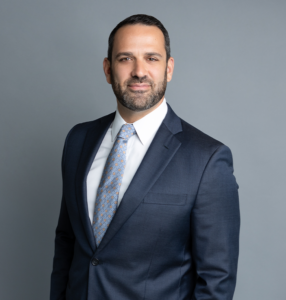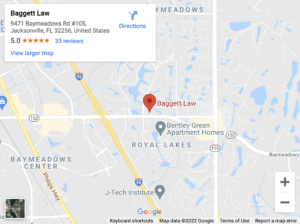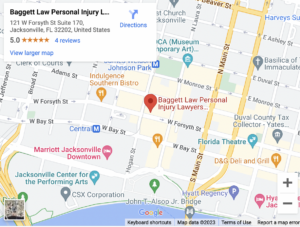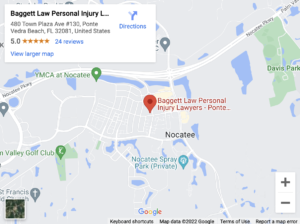
Accidents can be disruptive and often lead to both physical pains and financial burdens. If you’ve been injured due to someone else’s negligence in Florida, it might be time for you to consider filing a personal injury claim.
To do so, you need to know what steps to take, which we outline below.
Gather Evidence at the Accident Scene

This is often the first step when you suffer a personal injury. If possible, take photos or videos of where and how the incident occurred, as well as any visible injuries you have sustained. Get contact information from witnesses and make note of existing conditions like lighting, weather, or hazardous spots.
Getting witness contact details like names, phone numbers, or addresses allows you or your lawyer to reach them later on. Without these details, it might be difficult to find witnesses when needed.
Witness statements offer an objective point of view about what took place during the accident. This first-hand account is valuable, as it can strengthen your claim by providing more evidence about how you were injured and who was at fault.
Seek Prompt Medical Attention
After an accident or injury, immediately see a doctor for examination, even if your injuries appear minor at first glance. Some issues may not show symptoms immediately but could emerge later on.
Seeking medical attention after a personal injury is key. First, it helps ensure your health and safety. Second, it produces medical records which can provide evidence for your case.
Evidence of injury greatly affects the outcome of personal injury cases as they demonstrate the extent of harm caused by the accident.
Write Down Details of the Accident
It’s important to jot down everything that happened while it’s still fresh in your memory. This includes day, time, and location details, along with sensory memories, such as smell, noise, lighting, and color(s).
Also, record conversations related to the incident when they occur so you remember them accurately.
Speak To a Florida Personal Injury Lawyer
Seeking an attorney with experience handling personal injury cases will help you get through the complex legal procedures, as it’s difficult to manage them on your own.
An attorney can help you gather evidence, as they have the resources to thoroughly investigate your claim. They will also represent you at trial if the case isn’t settled. Most lawyers have a network of expert witnesses they can consult with to help prove your case.
If Involved in a Car Accident, Establish a “Serious Injury”
In Florida, a “no-fault” state, your own insurance covers injury costs regardless of who caused the car accident. To file a lawsuit for additional damages – such as pain and suffering – in Florida, you must prove you have sustained “serious” injuries.
Serious injuries are defined by Florida statute as:
- Significant and permanent loss of an important bodily function; or
- Permanent injury within a reasonable degree of medical probability, other than scarring or disfigurement; or
- Significant and permanent scarring or disfigurement; or
- Death.
If your injuries are not considered serious, or your PIP policy fully covers your medical expenses and lost wages, you’ll likely be limited to compensation from your insurance company.
Identify Potential Defendants
You must identify who is responsible for your injury. This could be a person, company, or government entity. It might even be more than one party. Take time and make sure every potential defendant is identified. You and your lawyer can do this by examining the circumstances of the incident that caused your injuries.
Determine Your Claim’s Value
This involves figuring out how much your claim is worth. Determine economic damages, like all costs related to treatment, recovery, and damage from the accident. Also include lost wages and property damage.
Medical costs can be calculated with bills and receipts, and lost earnings can be calculated by looking at how long you missed work. You should also speak with your lawyer about calculating any missed commissions, bonuses, and potential promotions.
Pain and suffering damages are more difficult to calculate, as no objective monetary value is attached to these damages. An experienced lawyer can help you with this.
Engage in Settlement Negotiations
After figuring out what your claim may potentially be worth, you enter into the negotiation phase, which begins with sending a demand letter that highlights injuries, costs, and suffering, among other relevant details.
This will usually go to the defendant’s insurance company, which will respond by either accepting demands, rejecting them completely, or countering with a lower offer.
File a Personal Injury Lawsuit
If negotiations fail, your next step should be initiating legal proceedings by filing a civil lawsuit in Florida. Once the complaint is filed, a period called “discovery” follows, where both sides exchange information related to the case.
At the trial, the jury listens to all evidence and your attorney’s argument, ultimately making a decision regarding liability and whether you’re entitled to compensation.
The Appeal Process
In some cases, you or the defendant may decide to file an appeal. This is usually done when one side believes that there were legal errors made before or during the trial.
Keep in mind that appeals can add time and expense to the process, taking years before being decided upon and finalized. There’s never any guarantee of a positive outcome. Therefore, it is wise to weigh the costs and benefits before moving forward with this step.
A Florida Personal Injury Attorney Can Help You Navigate the Legal Process
Each case is different but typically follows the above-outlined steps. If you need help with a personal injury or related matter, don’t hesitate to contact Bagget Law Personal Injury Lawyers to schedule a free consultation at (904) 396-1100.




